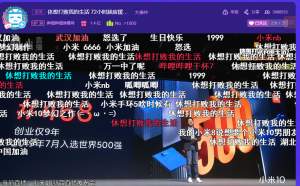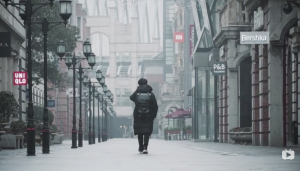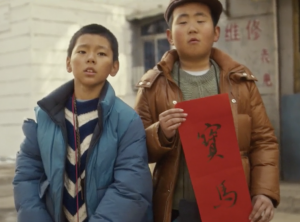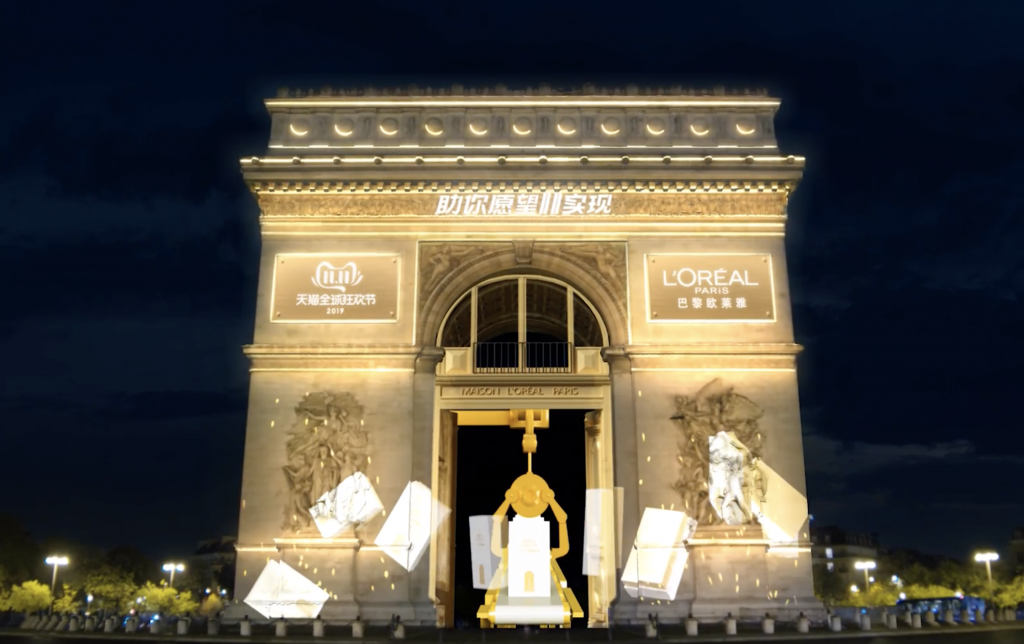
L’Oréal Paris and Tmall lit up the Arc de Triomphe for Singles’ Day 2019
Beauty was one of the top sales categories in the record-setting 2019 Singles’ Day sales, with four of the 15 brands that surpassed RMB 1 billion ($142 million) in sales on Alibaba platforms coming from that sector. (By way of comparison, no beauty brands reached that milestone in 2018.)
At the top of the list this year was L’Oréal Paris, one of the top-selling brands overall, keeping company with the like of Apple and Huawei. The brand worked closely with Alibaba to focus its Singles’ Day strategy for the Chinese market. L’Oréal’s top position highlights the brand’s rapid rise in popularity among Chinese consumers over the past few years. For Singles’ Day 2017, it was ranked eighth on the list of top-selling beauty brands, and last year was second to L’Oréal Group-owned Lancôme, before unseating it this year.
“If 11.11 is the Olympics of commerce, L’Oréal [Paris] is very proud to be the gold medalist of beauty,” said Fabrice Megarbane, president and CEO of L’Oréal China, at the post-Singles’ Day Observing China Forum in Beijing. “Our winning secret is constantly satisfying consumers’ desire with our DNA — innovation.”
L’Oréal employed a variety of techniques to draw Chinese consumers, with a special focus on reaching the critical younger generation of shoppers.
Working with Tmall Innovation Center
L’Oréal was among the brands that partnered with the Tmall Innovation Center (TMIC) to analyze data from Tmall to gain a better understanding of what types of products will be successful with China’s beauty consumers. Insights from TMIC about demographics and product demand led L’Oréal to create a new skin cream aimed at younger consumers on a short timeline. The brand’s Paris Midnight Cream hit the market after only 59 days of development. It was launched via Tmall’s product-debut tool Hey Box with marketing that targeted Gen Z and millennial audiences who stay out late. According to Megarbane, 80 percent of the product’s buyers were new to the L’Oréal brand.
“We used Tmall’s analytics to figure out if consumers wanted something that focused on dryness or oiliness, what price point was the right one and so on,” said Eileen Zong, brand general manager of L’Oréal Paris in China. “We also look at different consumer groups to see which make the most likely buyers of what we want to create, and how to design the product pages for them.”
Livestreaming
E-commerce livestreaming was one of the major drivers of Singles’ Day sales growth this year, and L’Oréal offered at least 6 hours of daily broadcasts starting from September 30, in a lengthy run-up to the main shopping day. The brand sponsored 17 hours of livestreaming broadcasts on the first day of pre-sales and a 24-hour marathon broadcast on November 11, which enabled it to generate a reported seven-fold increase in gross merchandise volume from livestreaming over 2018.
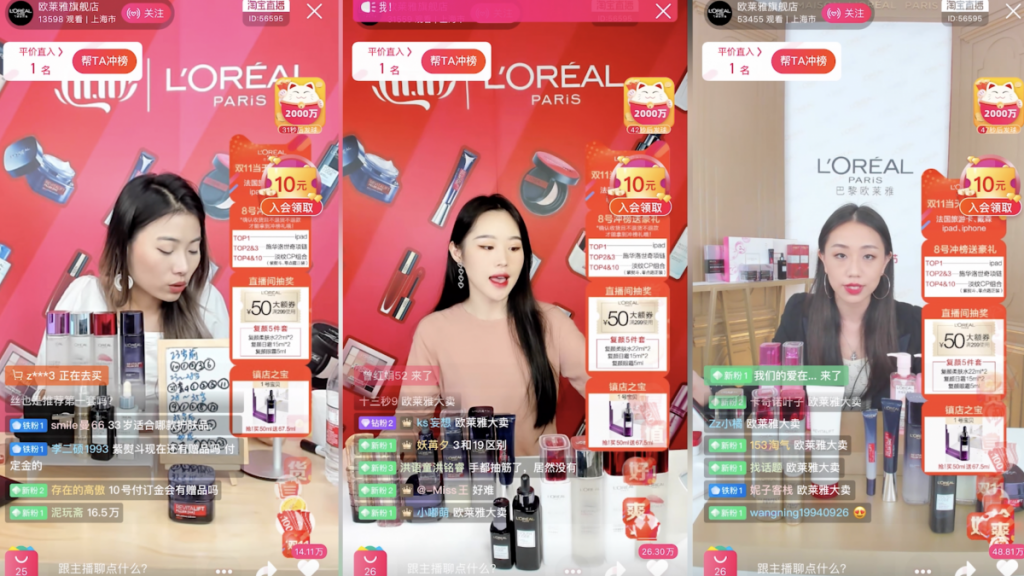
L’Oréal Paris livestreamers in action.
While beauty brands have been keen to showcase their products with the help of leading e-commerce influencers and celebrities, L’Oréal expanded its presenter slate to include the brand’s beauty advisers, who were trained to become influencers.
Fan Economy
Beauty brands rely heavily on celebrities to promote their products in China, betting that fans will spend to ensure the success of their favorite stars’ endorsement deals. L’Oréal worked with its stable of Chinese celebrity ambassadors on Singles’ Day social media campaigns, including Zhu Yilong and Li Yuchun.
Content and engagement
L’Oréal used content to drive consumer engagement on Tmall, telling stories about products through branded content and in-depth explorations of the label’s offerings through its beauty channel, La Maison L’Oréal Paris
“We wanted to use 11.11 to bring that to China, so consumers can see how those products are made,” said Zong. “They will be able to go through La Maison to discover how the products are produced, how they traveled on the production line and into consumers’ hands.”
Zong also noted the offline aspects of working with Tmall to engage customers. “We do a lot of pop-up stores, as well as offline consumer engagement events with the platform,” she said.
L’Oréal’s strategies highlight the increasing importance of tailoring brand initiatives to the local market. Speaking at the Observing China Forum, Bain & Company managing partner Manny Maceda observed: “In order to succeed in China, brands have to design products specifically for China market, make decisions locally, deliver in ‘China speed’ and digitalize China business.”



